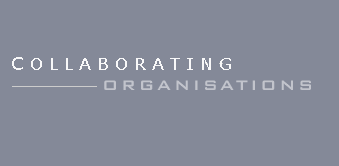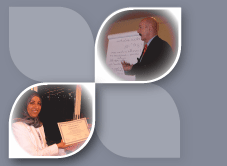|
Collaborating
organisations

THE INTERNATIONAL
INSTITUTE ON AGEING-UNITED NATION-MALTA (INIA)
Malta was first to raise the question of Ageing as a matter
of international concern at the United Nations in 1968.
As a result, in 1982, the General Assembly held the World
Assembly on Ageing. In its Resolution 37/51 it recommended
inter-alia the promotion of training and research, as
well as the exchange of information and knowledge in order
to provide an international basis for social policies
and action. It unanimously and without reservation, adopted
the Vienna International Plan of Action on Ageing which
remains the cornerstone of worldwide policy on Ageing.
In this respect, the Plan recommended that practical training
institutes should be promoted and encouraged so that they
act as a practical bridge between and among high-income
and low-income countries.
The UN Economic and Social Council, by its Resolution
1987/41 recommended to the UN Secretary-General, the establishment
of the International Institute on Ageing. On the 9th October
1987, the United Nations signed an official agreement
with the Government of Malta to establish the International
Institute on Ageing as an autonomous body under the auspices
of the United Nations. The Institute was inaugurated on
15th April, 1988 by the then United Nations Secretary-General,
H.E. Mr. Javier Perez de Cuellar.
The Institute operates under the guidance of an International
Board consisting of nine members. The Chairperson of the
Board and six members are appointed by the Secretary-General
of the United Nations, with due regard to the principle
of equitable geographical distribution, and two members
are appointed by the Government of Malta. The term of
office of the Board is that of three years.
In accordance with the Agreement signed between the United
Nations and the Government of Malta, the Institute aims
to fulfill the training needs of low-income countries
and to facilitate the implementation of the Madrid International
Plan of Action on Ageing.
The Institute provides multi-disciplinary education and
training in specific areas related to ageing, whilst also
acting as a catalyst as regards the exchange of information
on issues relating to ageing welfare. The Institute also
seeks to achieve its mandate through 'in-situ' training
programs. The first 'in-situ' training program was launched
in Cape Town, South Africa, in 1995.
INIA's training programs are further reinforced by the
Institute's other activities - these being data collection,
documentation, information exchange, technical co-operation
as well as research and publications. INIA thus carries
out Research Projects, hosts expert group meetings, and
offers Consultancy Services. The Institute is also mandated
to act catalytically, and to operate through a network
of co-operative cost-sharing arrangements, internationally
regionally and nationally in co-operation with the United
Nations and its agencies, the Regional Commissions and
governmental and non-governmental organizations.
As a sum up, the overall mandate of INIA is to empower
low-income countries to cope with the challenges of the
consequences of mass longevity in the next decades by
building capacity for them to be able to educate and train
their own personnel to formulate and implement their own
appropriate policies. This is done through the establishment
of regional training canters, through training key personnel
in different aspects of ageing. This is done by means
of international training programs in Malta as well as
through 'in-situ' training programs. INIA also commits
itself in providing continuing support and continuity
to sustain both the individual personnel and the Centers
through modern information technology. Lastly, INIA promotes
interactive networks and partnerships to sustain these
initiatives in low- income developing countries, and to
make available in an appropriate mode, expertise from
the high-income countries.
An official Memorandum of understanding was signed between
MEAMA and INIA for three years. The MuO Cover the term
of references for academic collaboration and activities,
which include:
- Sharing a world-wide collaborating network of professional
institutions engaged in varied forms of activities in
the field of ageing;
- Helping each other in terms to have
their research papers in English published in INIA's peer-reviewed
international journal;
- Exchanging experts to participate in
the activities of the two Organisations;
- Exchanging information and technical
assistance in the various fields of ageing;
- MEAMA will become part of INIA's world-wide
collaborating network of professional institutions engaged
in varied forms of activities in the field of ageing;
- MEAMA will make available to INIA its
publications in English;
- INIA will include MEAMA on its mailing
list for all its publications.
https://www.inia.org.mt

ASSOCIATION TUNISIENNE DE GERIATRIE
The Association was established in 2016
through the effort of an executive board member of MEAMA
Prof Sonia Hammami. The aims of the association is to
contribute to the development of the quality, efficiency
and safety of medical and paramedical services for the
elderly. It also aims to promote health care for poor
seniors. Among the goals of the Association are:
1. To promote and improve the teaching
of geriatrics in medical schools and higher health institutions
and nursing institutes, in order to improve their skills.
2. Provide support and training to the medical and paramedical
framework in the field of aging and provide them with
the basic rules of health care for the elderly, the aim
is to enable the elderly to be treated appropriately for
the specificities of their health.
3. Organize scientific seminars, national, regional and
international forums, in order to support the spread of
geriatric medicine in our country and also to consolidate
the culture of health care for the elderly with the medical
and paramedical framework, as this has a positive impact
on the health of our seniors.
The Tunisian Geriatric Association (ATG)
in Collaboration with MEAMA has launched an intensive
postgraduate course in geriatric medicine stimulating
interest and knowledge in geriatrics. The course is made
of 4 sessions, that last two days each and will be finished
within a year. The course is geared toward physicians
mainly internists and family physicians.
The topics of the four sessions will cover the major issues
of geriatrics practice and issues including
Session Topics
First session Metabolic disorders
Second session Osteoporosis, VitD , Falls Assessment
and Prevention, Rehabilitation, Sarcopenia
Third session Cognitive disorders , Diagnosis and
Management of Dementia, Delirium and Depression
Fourth session Major geriatric syndromes
The sessions will take place in Monastir
Tunisia. So far two cycle of the course had finished successfully.
The total number of graduates in the two cycle is 98 graduates.
These graduae received the postgraduate diploma of MEAMA
and became member of the MEAMA network.
At the of this course, participants should
be better able to: o Identify the basic principles of
geriatric medicine o Apply principles of geriatric assessment,
rehabilitation, o Understand key aspects of geriatric
syndromes and chronic pathologies as they apply to older
patients o Identify psychosocial problems and ethical
issues in decision-making.
http://www.geriatrie-tn.org
Maghreb Academy for Medicine of Ageing
(MAMA)
MAMA was created in 2018 as part of MEAMA.
The mission of MAMA is to create a hub for education and
training in the field of ageing in North Africa. There
is close links and collaboration between the two organizations
with shared board members and shared visions and missions.
The ultimate aim is to provide adequate training courses
in the field of geriatrics and gerontology in the whole
Middle East and North Africa.
Saudi Geriatric Association
SGA was championed by Dr Hashim Bulbaid
who is an executive board member of MEAMA.
https://mobile.twitter.com/saudigeriatrics?lang=ar
Middle-East
Association on Aging and Alzheimer's

Middle Eastern countries have certain cultural, social
and economic characteristics in common with similar aspiration.
The percentage of elderly in the Middle East is expected
to increase with improvement of the health care delivery
in the area. The region, like other developing countries,
needs to define the policies and programs that will reduce
the burden of aging populations on the society and its
economy. There is a need to ensure the availability of
health and social services for older persons and promote
their continuing participation in a socially and economically
productive life. In attempt to answer some of the deficit
in the region, the MEAAA was established in order to support
various activities in the field of aging and Alzheimer's
disease.
Therefore, the Society's objectives are:
• to promote the scientific study of aging in both
the biomedical and behavioral/social sciences; by direct
members and member organizations, and to promote cooperation
among these organizations
• to support the Middle-East journal of Age &
Aging
• to promote research and knowledge about Alzheimer's
disease and to raise public awareness about the disease
• to stimulate communications among scholarly disciplines,
and among professionals including researchers, teachers,
administrators, and others;
• to expand education in aging; and to develop the
qualifications of gerontologists by setting high standards
of professional ethics, conduct, education, and achievement.
To promote training of highly qualified personnel in the
fields of aging.
• to foster application of research to the field
of practice; and to advance the utilization of research
in the development of public policy; and to disseminate
research findings by means of its publications;
• to promote the interests of the gerontological
organizations and individual members in all questions
pertaining to foreign or international matters.
• to promote and assist in the arrangements for holding
the Middle-Eastern Congress of Gerontology at intervals
determined by the Council.
Since its establishment the association
was instrumental in organizing the first Middle East congress
on Ageing in Istanbul in 2005. The Second Middle East
Congress on Ageing and Alzheimer's was organized in Tripoli
in 2009 and the third one planned to be organized in Saudi
Arabia in 2012. The association has been registered in
Switzerland and the secretariat office is at Abyad Medical
Center, Tripoli, Lebanon.
http://www.me-jaa.com/meaaa.htm
Abyad Medical Center - AMC

Abyad Medical Center is a multispeciality
group practice with multiple medical and surgical specialties,
in addition to specialised unit and services available
through the center.The center started in 1997 and established
itself as pioneer in providing quality services for the
North of Lebanon.
Since its establishment the center has launched a large
number of public campaign in the field of osteoporosis,
obesity and other important topics for public education.
The Center started as well several regional and international
initiatives including :
1. Middle-East Academy for Medicine of Ageing
2. Middle-East Longevity Institute
3. Middle-East Journal of Family Medicine
4. Middle-East Journal of Age & Aging
5. Middle East Journal of Nursing,
6. Middle East Journal of Business,
7. Middle East Journal of Internal Medicine
8. Middle East Journal of Pyschiatry.
9. Middle-East Primary Care Research Network MEPCRN
10. Middle-East Network on Aging
11. Middle East Network on Elderly Care Services MENECS
12. Middle-East Association of Age, Aging & Alzheimer's
http://www.amclb.com
Middle East Network on Ageing Research
- MENAR

There is a substantial research need in
the ageing field in the Middle-East. Research is an essential
prerequisite in developing the speciality further in the
area, and in developing evidence-based practice. Therefore
the Middle East Network on Ageing Research (MENAR) was
established. It will be linked to a number of international
organizations dealing with elderly issues.
MENAR started in 2006. The aim of the MENAR is to develop
Geriatrics and Gerontology Research in the area, in particular
to do the following:
1. To build the aging research network to fulfil unmet
research needs.
2. To do collaborative research within the area, and with
other networks.
3. To lobby for financial support for research in the
Aging field from different organisations.
4. To help in the development of research training programmes,
and the professional development of family physicians/researchers.
5. To organise conferences that deals with research in
Ageing.
6. To establish a number of experts from a multidisciplinary
background to act as advisors and mentors.
7. To help in publication of research studies from the
region.
8. To foster collaboration between individual physicians,
centres and countries within the Region.
9. To help in the exchange of ideas and methodologies
in the area.
Currently there are fourteen countries represented in
the network in addition to two national networks. The
countries involved include Lebanon, Egypt, Saudi Arabia,
UAE, Kuwait, Qatar, Bahrain, Qatar, Iraq, Turkey, Iran,
Tunisia, Greece, Jordan, Bangladesh, USA, Belgium, Italy
The network has participated in a number of studies.
http://www.me-jaa.com/menar-index.htm
medi+World International

medi+WORLD International is a publishing
house specialising in accredited medical education projects
for world doctors. medi+WORLD International collaborates
with world organisations, colleges, academies and NGO's
to find innovative IT solutions for the health and medical
sectors.
World Family Medicine (WFM)
Middle East Journal of Family Medicine (MEJFM)
Middle East Journal of Age and Ageing (ME-JAA)
Middle East Journal of Business (MEJB)
Middle East Journal of Nursing (ME-JN)
Middle East Journal of Internal Medicine (MEJIM)
South Asia Family Medicine Journal (SAFMJ)
Middle East Journal of Psychiatry and Alzheimer's (MEJPA)
They are the leading publishers in the
Middle East, with our flagship, MEJFM, attracting circa
500,000 readers per issue/month, with papers from both
the region and the world, and a focus on regional and
global health issues.
The Middle East medical journals have
played an active role in the ongoing development of academic
standards and medical practice in the Middle East, through
both the journals and participation in and support of
regional conferences and events. They enjoy a position
of great influence and respect, reflected by our top Regional
and International Board who also support a range of social
and medical initiatives we have introduced in the region.
http://www.mediworld.com.au
|













